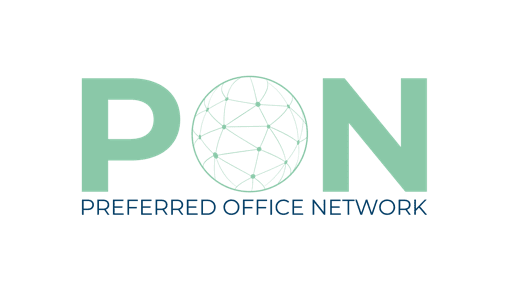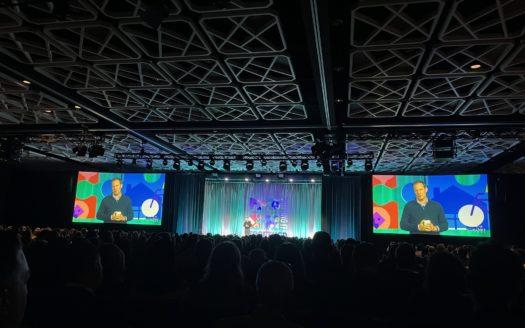
We were delighted to see our Vice President of Business Development, Morgan Neff, featured as a panelist in the Global Workspace Association’s Spring Event which discussed the topic of, “What Does Today’s Customer Want?”
Morgan was joined by William Edmundson, Board President of GWA and panelists, Nick Clark, CEO of Common Desk, and Kane Wilmott, CEO of IQ Offices.
First to speak was Nick Clark, CEO of Common Desk who as a prominent Texas-based flex space provider, explained how Common Desk’s membership offerings have changed and evolved in the last year and a half.
“Common Desk is focusing on going from a rigid membership offering to it being way more digestible for the end user,” said Nick.
“The big trend that is happening now – is obviously COVID just projected us into the future of [the] office even more – is that it’s definitely steering the market in our direction.”
“What we have found, at least in Texas, is that occupiers are now wanting even more flexibility. They’re coming to us and saying, ‘we’ll actually sign a one-to-three-year deal term, but we only want space on Mondays, Wednesdays, and Fridays, or maybe we only want space once a week.”
“I think we’re going to start seeing teams, both big and small, that are saying, ‘We want to digest this space differently, now, and we want to do it in more bite-sized pieces. That is something that we’ve been heavily focused on over the last year of the business – saying, ‘How do we start to transition the memberships that we offer to where they truly can be digested on more of an on-demand basis – whether people are wanting it every day of the week, one day of the week, [or] a few days of the week.
“We’re big believers that if you can go out and meet that demand properly, then flex office doesn’t necessarily need to mean month-to-month, or six-month terms.”
“People will sign up for longer terms when they feel like you’re meeting the needs of how they want to utilize the workspace,” Nick added.
Next to speak was Kane Wilmott, CEO of IQ Offices – a provider focused on offering luxury coworking spaces and private offices in Canada’s downtown cores.
“IQ Offices found that people were looking at using their office less, and asking, “Why don’t I get access to that same office product or that same quality of product, at a fraction of the cost,” explained Kane.
“The challenge we had was that number one, that is not our core business and number two, there wasn’t enough depth of the on-demand users.”
“We stepped back and said, ‘Okay, who are we and who do we really serve?’ And at the end of the day, we really serve that enterprise user. We thought, instead of trying to service a different market under a different model, why don’t we focus on how to serve that one group?”
“Through that, what we determined was the utilization of the office was becoming more in the front of mind of the groups that are our primary and core clients.”
“They’re not thinking, ‘Okay, how do I utilize this office less, save a little bit of money, fractional usership and that kind of thing.’ But what they were thinking is, ‘What is our need? How do we make it more efficient? If we have 20 people, do we need a 20-person office?’”
“We found that with most companies [their needs are] very different. Some companies want to be in the office every day, other companies really want to do the hybrid work style, and we found that we can accommodate that. We can provide that same level of offering – which is a dedicated space – but we can complement that with some intelligence, some service, technology platforms, and more,” Kane added.
Third to speak was our very own Morgan Neff, VP of Business Development for Preferred Office Network.
“PON is not an operator or an online listing service,” explained Morgan. “We’re delivering streamlined access to corporations, Fortune 1000, and Fortune 500 companies to a curated network of operators.”
“The network was formed to provide an alternative to enterprise level business other than Regus and WeWork. We wanted to give independent operators a chance to get into the mix.”
With this different approach than a traditional operator, William asked Morgan, “What are Fortune 500 Companies thinking and how are their needs changing in the current environment and over time?”
“From our seat with PON, talking to these clients, what we’re seeing is open doors all over the place because corporations have had their workforce at home for a year plus – and people have been productive,” explained Morgan.
“Now, these corporations who probably wouldn’t have looked at coworking or flex as an option, are now looking to coworking and flex as an option. We’re seeing a variety of different requests coming to us to ask what the next step may be.”
Some of the new clients have thought through what their phase 1, 2, 3, and 4 – or a two-to-four-year plan – of how they transition their workforce out of traditional leases into a more flexible model. Some have really put some forethought into where they want to be, and some have not.”
“Some just don’t know what there is – what is the opportunity? How can we get flexible? How truly flexible can you be?”
“It’s been an interesting and exciting journey to talk to these clients about what’s possible. The real positive thing that you’ve heard from Nick and Kane, operators of all sizes are willing to get more flexible and get creative in how they open their doors to different types of use.”
“We’re able to then listen to what the customer wants, go to our membership and say, “This is what they’re [the customer] asking for, what have you been doing? And then come up with solutions together to fill a gap.”
“Some of these companies are not quite yet ready to get back in [to the office] fully but some people are itching to get out of their home office. They’re telling their heads of real estate, “We need a quiet place for productivity,” she added.
Additionally, PON is now developing a new product to answer the demands of today in hopes of growing it into something more dedicated in the months to come.
“We’re working on a day pass model that PON is calling YESpass,” Morgan said.
“A corporation would buy a certain number of passes, they’d select a location in a desired market, they’d divvy those passes up to their workforce, and those people have the ability to go into a place and work on their own schedule,” she added.
With COVID-19 restrictions being lifted across the country, the next few months of the flex office market promise to be abuzz with activity with many making a hopeful return to the office.
While the demand may continue to evolve, PON is ready to work strategically with its members to maximize new opportunities and continually offer that same level of flexibility that our clients know and love.
While these quotes represent just a fraction of the valuable information offered up by William, Nick, Kane, and Morgan, the full GWA Spring Event is linked here to watch.



